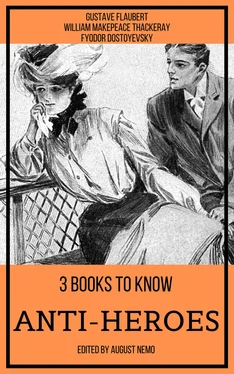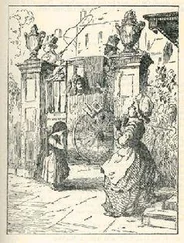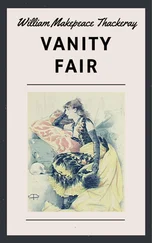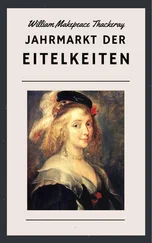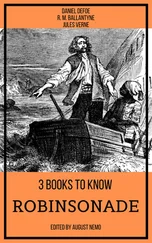The aunt of the Countess Ida, who presided over her house during her minority, had foolishly allowed her to contract an attachment for her cousin-german, a penniless sub-lieutenant in one of the Duke’s foot regiments, who had flattered himself to be able to carry off this rich prize; and if he had not been a blundering silly idiot indeed, with the advantage of seeing her constantly, of having no rival near him, and the intimacy attendant upon close kinsmanship, might easily, by a private marriage, have secured the young Countess and her possessions. But he managed matters so foolishly, that he allowed her to leave her retirement, to come to Court for a year, and take her place in the Princess Olivia’s household; and then what does my young gentleman do, but appear at the Duke’s levee one day, in his tarnished epaulet and threadbare coat, and make an application in due form to his Highness, as the young lady’s guardian, for the hand of the richest heiress in his dominions!
The weakness of the good-natured Prince was such that, as the Countess Ida herself was quite as eager for the match as her silly cousin, his Highness might have been induced to allow the match, had not the Princess Olivia been induced to interpose, and to procure from the Duke a peremptory veto to the hopes of the young man. The cause of this refusal was as yet unknown; no other suitor for the young lady’s hand was mentioned, and the lovers continued to correspond, hoping that time might effect a change in his Highness’s resolutions; when, of a sudden, the lieutenant was drafted into one of the regiments which the Prince was in the habit of selling to the great powers then at war (this military commerce was a principal part of his Highness’s and other princes’ revenues in those days), and their connection was thus abruptly broken off.
It was strange that the Princess Olivia should have taken this part against a young lady who had been her favourite; for, at first, with those romantic and sentimental notions which almost every woman has, she had somewhat encouraged the Countess Ida and her penniless lover, but now suddenly turned against them; and, from loving the Countess, as she previously had done, pursued her with every manner of hatred which a woman knows how to inflict: there was no end to the ingenuity of her tortures, the venom of her tongue, the bitterness of her sarcasm and scorn. When I first came to Court at X—, the young fellows there had nicknamed the young lady the Dumme Grafinn, the stupid Countess. She was generally silent, handsome, but pale, stolid-looking, and awkward; taking no interest in the amusements of the place, and appearing in the midst of the feasts as glum as the death’s-head which, they say, the Romans used to have at their tables.
It was rumoured that a young gentleman of French extraction, the Chevalier de Magny, equerry to the Hereditary Prince, and present at Paris when the Princess Olivia was married to him by proxy there, was the intended of the rich Countess Ida; but no official declaration of the kind was yet made, and there were whispers of a dark intrigue: which, subsequently, received frightful confirmation.
This Chevalier de Magny was the grandson of an old general officer in the Duke’s service, the Baron de Magny. The Baron’s father had quitted France at the expulsion of Protestants after the revocation of the edict of Nantes, and taken service in X—, where he died. The son succeeded him, and, quite unlike most French gentlemen of birth whom I have known, was a stern and cold Calvinist, rigid in the performance of his duty, retiring in his manners, mingling little with the Court, and a close friend and favourite of Duke Victor; whom he resembled in disposition.
The Chevalier his grandson was a true Frenchman; he had been born in France, where his father held a diplomatic appointment in the Duke’s service. He had mingled in the gay society of the most brilliant Court in the world, and had endless stories to tell us of the pleasures of the petites maisons, of the secrets of the Parc aux Cerfs, and of the wild gaieties of Richelieu and his companions. He had been almost ruined at play, as his father had been before him; for, out of the reach of the stern old Baron in Germany, both son and grandson had led the most reckless of lives. He came back from Paris soon after the embassy which had been despatched thither on the occasion of the marriage of the Princess, was received sternly by his old grandfather; who, however, paid his debts once more, and procured him the post in the Duke’s household. The Chevalier de Magny rendered himself a great favourite of his august master; he brought with him the modes and the gaieties of Paris; he was the deviser of all the masquerades and balls, the recruiter of the ballet-dancers, and by far the most brilliant and splendid young gentleman of the Court.
After we had been a few weeks at Ludwigslust, the old Baron de Magny endeavoured to have us dismissed from the duchy; but his voice was not strong enough to overcome that of the general public, and the Chevalier de Magny especially stood our friend with his Highness when the question was debated before him. The Chevalier’s love of play had not deserted him. He was a regular frequenter of our bank, where he played for some time with pretty good luck; and where, when he began to lose, he paid with a regularity surprising to all those who knew the smallness of his means, and the splendour of his appearance.
Her Highness the Princess Olivia was also very fond of play. On half-a-dozen occasions when we held a bank at Court, I could see her passion for the game. I could see—that is, my cool-headed old uncle could see—much more. There was an intelligence between Monsieur de Magny and this illustrious lady. ‘If her Highness be not in love with the little Frenchman,’ my uncle said to me one night after play, ‘may I lose the sight of my last eye!’
‘And what then, sir?’ said I.
‘What then?’ said my uncle, looking me hard in the face. ‘Are you so green as not to know what then? Your fortune is to be made, if you choose to back it now; and we may have back the Barry estates in two years, my boy.’
‘How is that?’ asked I, still at a loss.
My uncle drily said, ‘Get Magny to play; never mind his paying: take his notes of hand. The more he owes the better; but, above all, make him play.’
‘He can’t pay a shilling,’ answered I. ‘The Jews will not discount his notes at cent. per cent.’
‘So much the better. You shall see we will make use of them,’ answered the old gentleman. And I must confess that the plan he laid was a gallant, clever, and fair one.
I was to make Magny play; in this there was no great difficulty. We had an intimacy together, for he was a good sportsman as well as myself, and we came to have a pretty considerable friendship for one another; if he saw a dice-box it was impossible to prevent him from handling it; but he took to it as natural as a child does to sweetmeats.
At first he won of me; then he began to lose; then I played him money against some jewels that he brought: family trinkets, he said, and indeed of considerable value. He begged me, however, not to dispose of them in the duchy, and I gave and kept my word to him to this effect. From jewels he got to playing upon promissory notes; and as they would not allow him to play at the Court tables and in public upon credit, he was very glad to have an opportunity of indulging his favourite passion in private. I have had him for hours at my pavilion (which I had fitted up in the Eastern manner, very splendid) rattling the dice till it became time to go to his service at Court, and we would spend day after day in this manner. He brought me more jewels,—a pearl necklace, an antique emerald breast ornament, and other trinkets, as a set-off against these losses: for I need not say that I should not have played with him all this time had he been winning; but, after about a week, the luck set in against him, and he became my debtor in a prodigious sum. I do not care to mention the extent of it; it was such as I never thought the young man could pay.
Читать дальше
